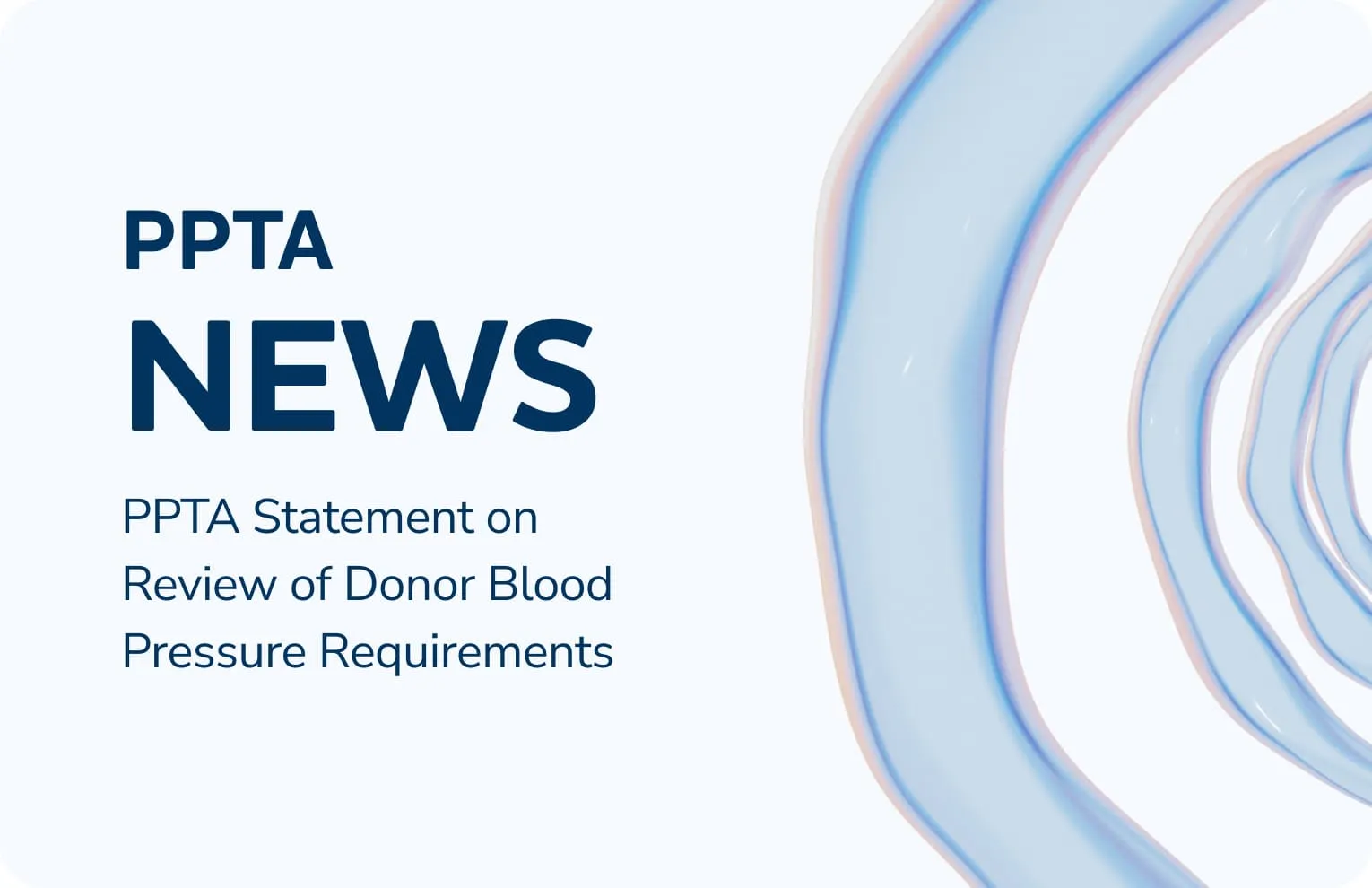February 25, 2021 (Annapolis, MD) — The Plasma Protein Therapeutics Association (PPTA) welcomes the decision of the UK government to lift a two decades old ban on the use of UK-donated plasma for the manufacture of immunoglobulins, following a scientific review conducted by the Medicines and Healthcare Products Regulatory Agency. The ban was imposed in 1998 to mitigate the spread of variant Creutzfeldt Jakob Disease (vCJD), but experts have now concluded that the use of UK-sourced plasma to manufacture immunoglobulins is safe and can recommence, supported by a set of robust safety measures.
Immunoglobulins belong to a group of essential, lifesaving medicines derived from human plasma. These plasma-derived medicinal products (PDMPs) are essential for patients with rare, serious, and often life-threatening medical conditions, as they replace patients’ missing or deficient proteins and are often the only available treatment for these individuals.1
“For too long, patients in the UK have relied entirely on U.S. plasma donors for the manufacture of plasma-derived medicines,” said Amy Efantis, PPTA President and CEO. “The need for plasma is now more urgent than ever, so this decision by the UK government will help increase the overall availability of these lifesaving medicines.”
Europe is currently dependent on plasma from U.S. donors for 38% of its clinical need for plasma-derived medicinal products. Increasing plasma collections wherever possible is essential to meet the growing clinical need for plasma-derived medicines. Accordingly, PPTA eagerly anticipates the publication by the European Medicines Agency of its assessment on the safety and use of UK plasma for manufacturing of PDMPs.
The availability of PDMPs is reliant on regular plasma donations from a healthy and committed donor population. Plasma can be obtained from whole blood donations (resulting in recovered plasma) or collected directly through a process called plasmapheresis (resulting in source plasma).
1 More patients across the European Union are diagnosed every year with life-threatening plasma protein related disorders, such as, immune deficiencies, immune-mediated peripheral neuropathies, hereditary angioedema, alpha 1-antitrypsin deficiencies, and hemophilia and other bleeding disorders. In many cases, PDMPs are the only treatment option for these rare diseases. New indications, improved diagnostic techniques, greater use in emerging markets, and an increased use in cancer treatment-induced secondary immunodeficiency are further contributing to the growing clinical need for PDMPs.
Media Contact:
Mathew Gulick
Director, Global Communications
+1.443.995.6152
mgulick@pptaglobal.org
Created on February 25 2021.





